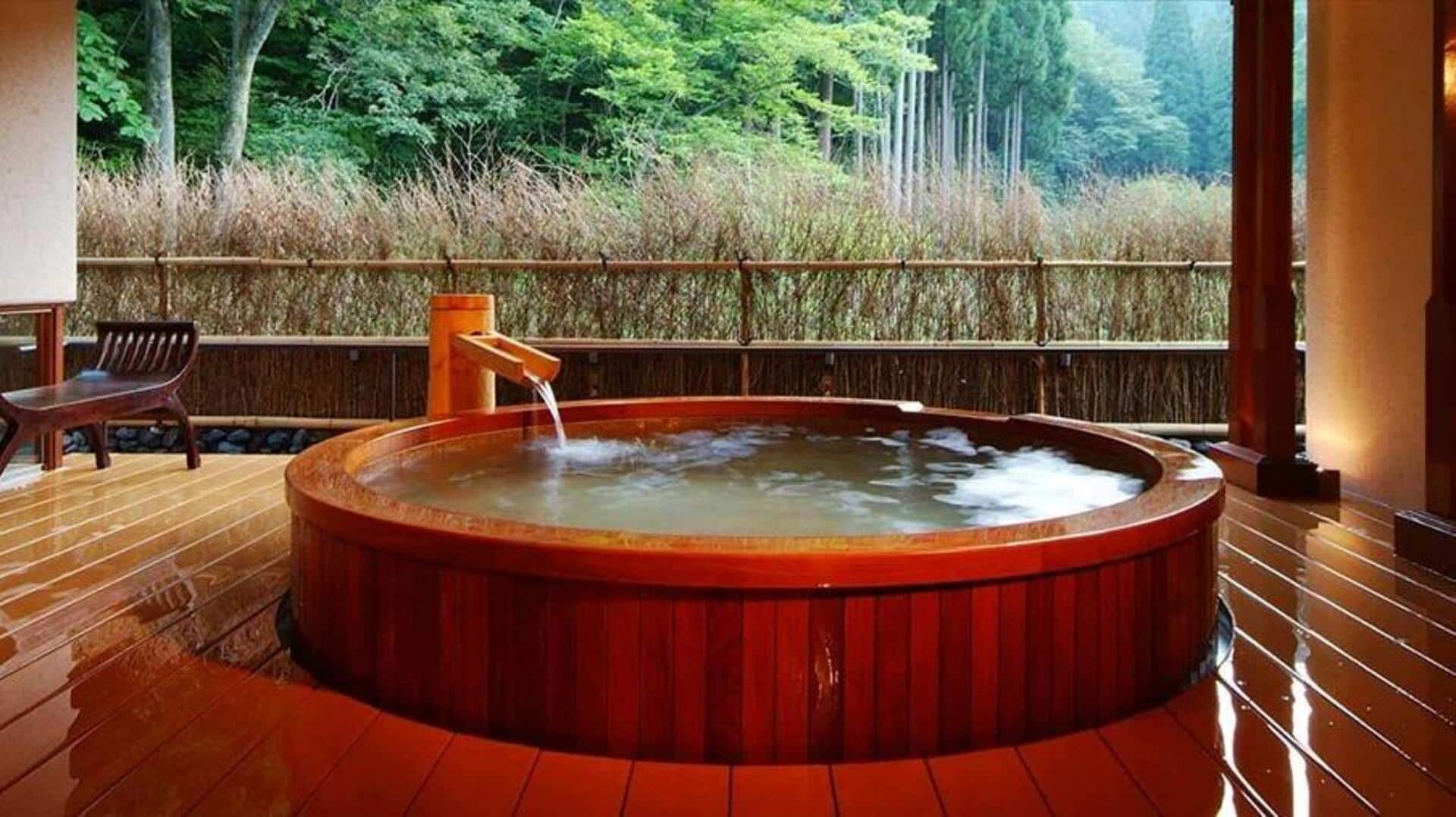
Embracing serenity: The tradition of Japanese onsen baths
What's the story
Japanese onsen baths take relaxation to a whole new level, combining the tranquility of a spa with the deep-rooted traditions of Japanese culture. These geothermal hot springs go beyond mere bathing - they're places of healing, relaxation, and social connection. And with hundreds of onsens spread throughout Japan, each one offers a unique experience defined by its location and the specific minerals found in its waters.
Healing
The healing powers of onsen waters
The mineral content of onsen waters differs depending on the spring, with some rich in sulfur, calcium, magnesium, and other minerals. These minerals are thought to provide health benefits like increased circulation, joint pain relief, and improved skin health. For hundreds of years, people have flocked to onsens not only for relaxation but also for the healing properties they believe these waters possess.
Tradition
A deep-rooted tradition in Japanese culture
The tradition of onsens runs deep in Japan, spanning thousands of years. Historical records dating back to the eighth century mention their use for healing and ritual purification before religious ceremonies. In fact, many Japanese people visit onsens during special holidays or as part of seasonal festivals, continuing a tradition that blends relaxation with cultural significance.
Etiquette
The etiquette of onsen bathing
Adhering to onsen etiquette is crucial for anyone seeking to experience these baths. Bathers must ensure they are completely clean before entering the water by washing themselves thoroughly at the washing stations provided in changing rooms. Entry into the water should be done quietly, without any splashing or swimming. Towels must never touch the water - they are usually placed on one's head while bathing.
Exploration
Experiencing onsens across Japan
Japan's onsen culture offers a diverse range of experiences. You can soak in outdoor rotenburo baths with breathtaking views or relax in indoor baths with intricate designs showcasing local artistry. Fancy a sand bath? Head to Beppu in Kyushu. Want to gaze at Mount Fuji while enjoying volcanic hot springs? Hakone near Tokyo is your go-to!
Tips
Tips for first-time onsen visitors
First-time onsen visitors should ensure they stay hydrated as temperatures can range from 37 degrees Celsius to 42 degrees Celsius (98 degrees Fahrenheit to 107 degrees Fahrenheit). Choose early mornings or late evenings for a more peaceful experience. Most onsens are gender-segregated, and tattoos are often prohibited due to their historical association with organized crime in Japan.